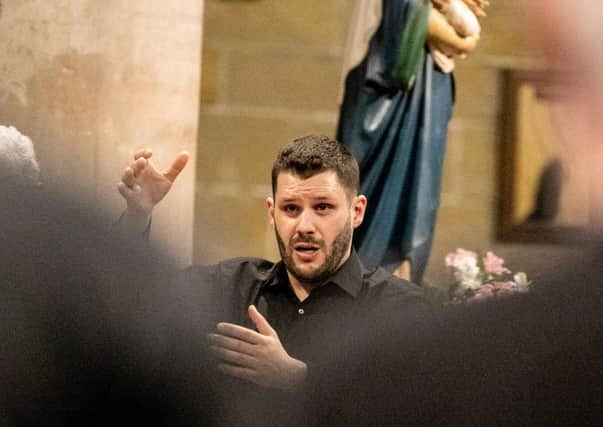Choir shone in a rich and moving concert devoted to reflective music


The singers of Hastings Philharmonic Chamber Choir were arranged in an open circle at the front of Christ Church and the interplay of voices was constantly crisp and alert to the text. Though the programme did not have a printed translation, members of the choir read the English versions immediately before each piece; a practice which proved to be very effective.
The evening opened with Schutz’ Selig Sind Die Toten with its rich Venetian harmonies before the cleaner lines of Bach’s reflective Jesu Meine Freude. By contrast Brahms’ In Stiller Nacht was given by an octet, with gently hushed phrases and a romanticism which belied the spiritual nature of the text.
Advertisement
Hide AdAdvertisement
Hide AdRheinberger’s more familiar Abendlied allowed the top sopranos to demonstrate the security of their tessitura, before Reger’s Nachtlied. Though this is a late work, its musical line has a clear ancestry through Bach and Mendelssohn. The first half ended with Mozart’s well-known Ave Verum Corpus where the transparent lines seemed to lift seamlessly into the air.
The major part of the second half was given over to six motets by Bruckner. The range of styles here was interesting with the composer happy to revert almost three centuries for O Justi and yet reflect Wagner In Locus Iste. Before this we heard a heart-warming rendition of Schubert’s Die Nacht, for men’s chorus and the evening concluded with Mahler’s Ich Bin Der Welt Abhanden Gekommen. This was by far the most complex setting of the evening and one which tested the singers to their limits. That they rewarded us with such a fine interpretation, rich, moving and entirely lyrical, was a tribute to them and Marcio da Silva.
Throughout, Francis Rayner had provided discrete organ accompaniment where needed, and the acoustic had proved to be a very favourable venue for unaccompanied voices.
The final concert in this year’s Hastings Philharmonic season comes on Saturday July 7 when they will present an Opera Gala at St Mary in the Castle. By Brian Hick.